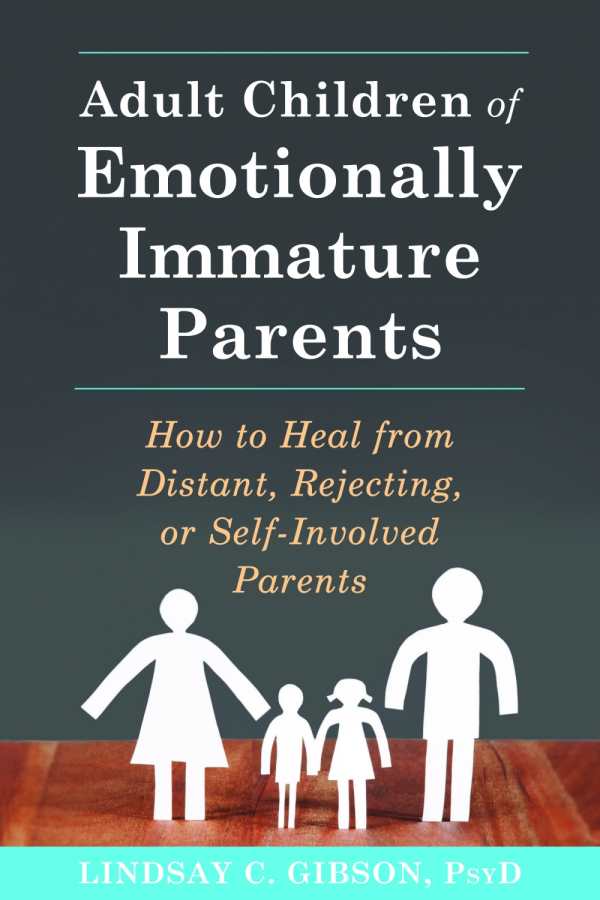Adult Children of Emotionally Immature Parents
How to Heal from Distant, Rejecting, or Self-Involved Parents
A soothing, healing work for teens and adults whose lives bear the mark of their parents’ immaturity.
Adult Children of Emotionally Immature Parents: How to Heal from Distant, Rejecting, or Self-Involved Parents, by Lindsay C. Gibson, PsyD, gives practical insight into a prevalent problem.
The topic is not often mentioned—adults whose lives bear the mark of their parents’ emotional immaturity—but once it comes up, it seems almost ubiquitous. While many of these adults function well, the remnants of their childhood follow them: resentment, isolation, fear. Gibson offers her experience and research as a clinical psychologist to help these adult children; the goal is not to change the parents, but for the children to find freedom and healing. Gibson presents a good balance of dissecting the past and looking to the future, including real-life stories and exercises to transform the theoretical into personal and practical.
Gibson’s approach is methodical and practical. She describes the four types of immature parent: emotional, driven, passive, and rejecting. Then she explains how adult children manifest the effects of this parenting. The most powerful chapter is “How to Identify Emotionally Mature People”—having grown up with the opposite, it can be hard to see what healthy looks like. Whereas emotionally immature people are “self-referential, not self-reflective,” emotionally mature people “make you feel seen and understood.”
The book is impeccably clear—from the chapter titles all the way down to sentence structure and word choice. The end-of-chapter summaries help when content is overwhelming. This utter lack of confusion makes the book quite soothing, despite the heavy subject. The soothing effect is amplified by Gibson’s caring, knowledgeable voice—it’s easy to believe her when she says, “I wish the very best for you.”
This book can be a source of healing for adult children of these kinds of parents—particularly for young adults. But it’s also insightful for bosses, therapists, friends, and anyone else who works with, cares for, and supports the people described in this book. Gibson’s professional background allows her to anticipate people’s emotions and reticence—and urge them gently forward.
All in all, Gibson offers compassion and hope to people who’ve been hurt.
Reviewed by
Melissa Wuske
Disclosure: This article is not an endorsement, but a review. The publisher of this book provided free copies of the book to have their book reviewed by a professional reviewer. No fee was paid by the publisher for this review. Foreword Reviews only recommends books that we love. Foreword Magazine, Inc. is disclosing this in accordance with the Federal Trade Commission’s 16 CFR, Part 255.

